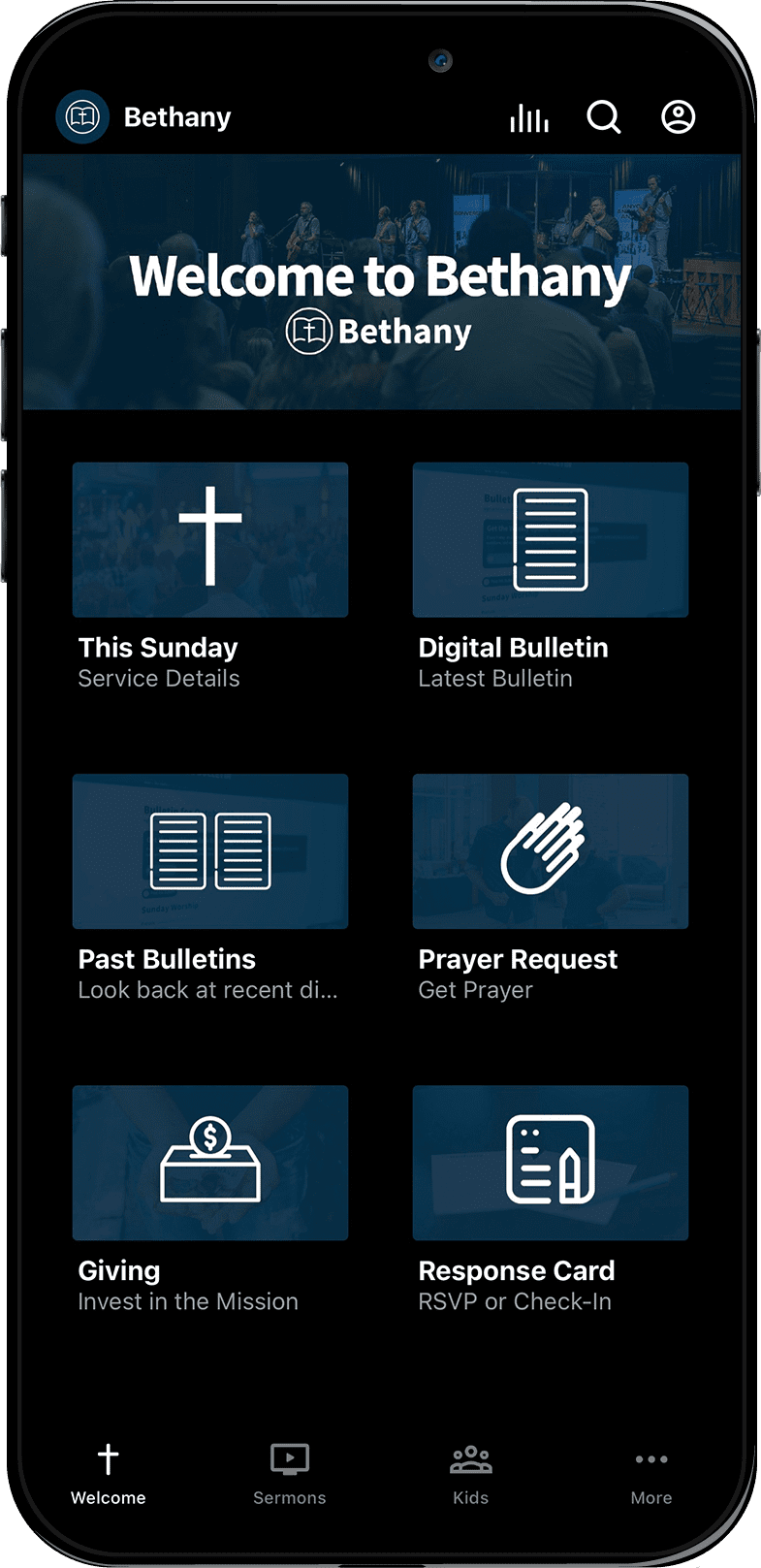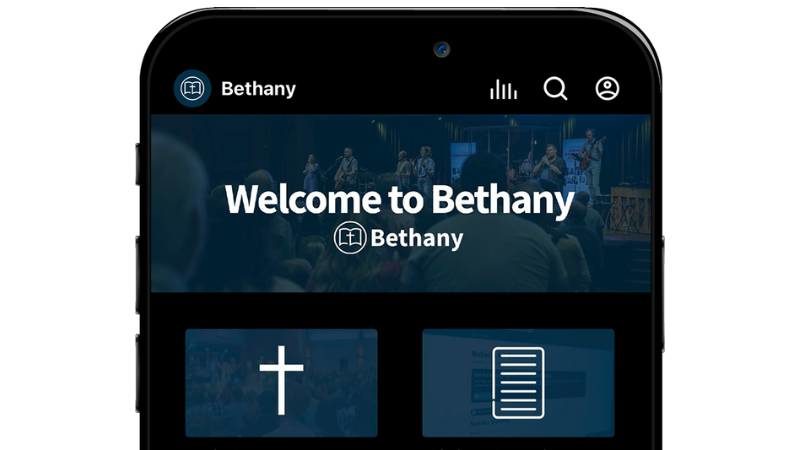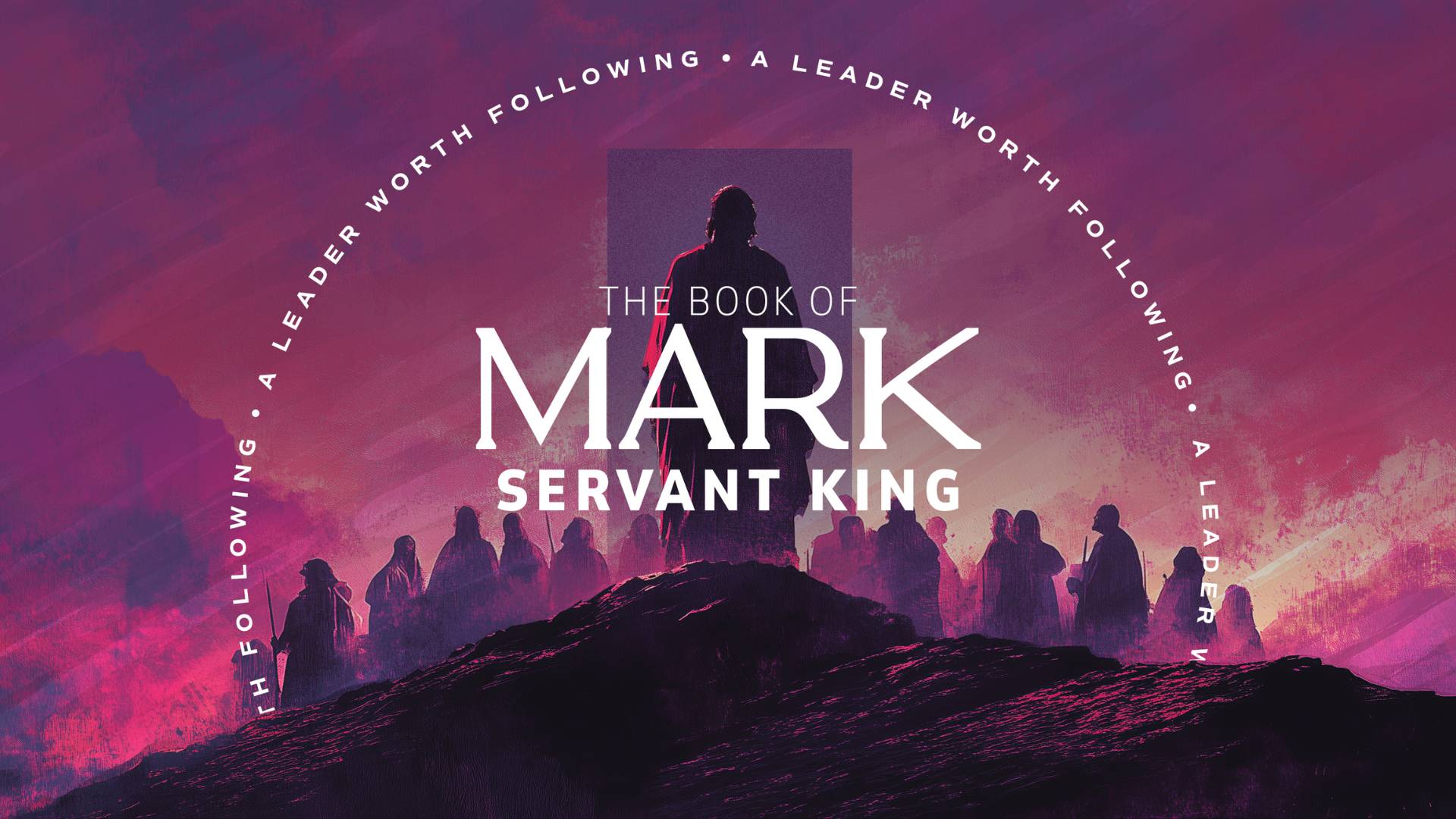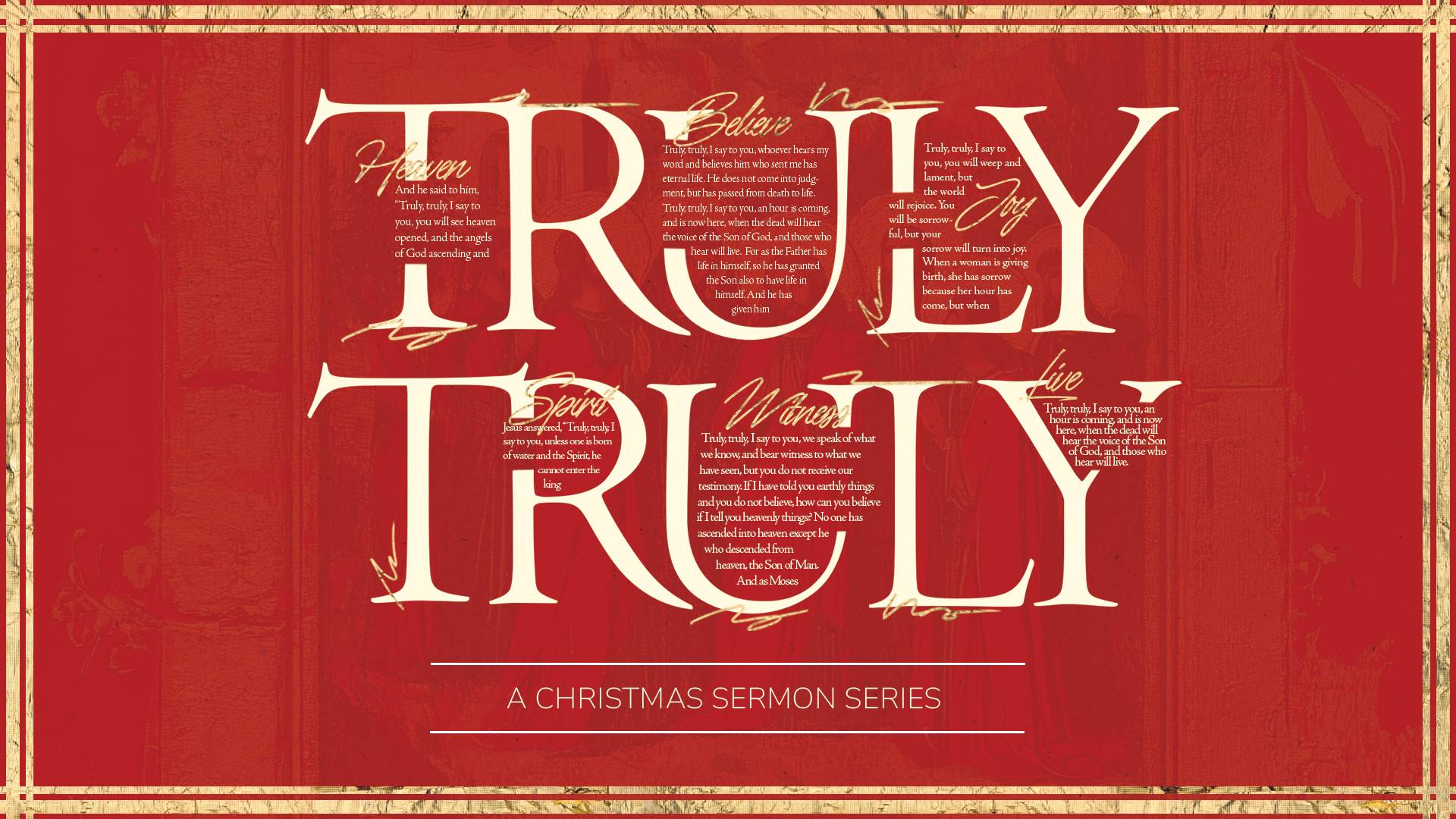In This Series
Ordinary Ministry, Extraordinary God
Acts 9:32-43 (ESV)
May 30, 2021
Pastor Josh Beakley
Let’s turn to the book of Acts and continue our series God On the Move in Acts chapter 9. We’re going towards the end of this chapter, verses 32-43. There are two stories of healing and the power of God in a message we’ll call Ordinary Ministry, Extraordinary God.
32 Now as Peter went here and there among them all, he came down also to the saints who lived at Lydda. 33 There he found a man named Aeneas, bedridden for eight years, who was paralyzed. 34 And Peter said to him, “Aeneas, Jesus Christ heals you; rise and make your bed.” And immediately he rose. 35 And all the residents of Lydda and Sharon saw him, and they turned to the Lord.
36 Now there was in Joppa a disciple named Tabitha, which, translated, means Dorcas. She was full of good works and acts of charity. 37 In those days she became ill and died, and when they had washed her, they laid her in an upper room. 38 Since Lydda was near Joppa, the disciples, hearing that Peter was there, sent two men to him, urging him, “Please come to us without delay.” 39 So Peter rose and went with them. And when he arrived, they took him to the upper room. All the widows stood beside him weeping and showing tunics and other garments that Dorcas made while she was with them. 40 But Peter put them all outside, and knelt down and prayed; and turning to the body he said, “Tabitha, arise.” And she opened her eyes, and when she saw Peter she sat up. 41 And he gave her his hand and raised her up. Then, calling the saints and widows, he presented her alive. 42 And it became known throughout all Joppa, and many believed in the Lord. 43 And he stayed in Joppa for many days with one Simon, a tanner.
I was reading this week and saw an imaginary advertisement that went like this. “INCREDIBLE BREAKTHROUGH! Scientists have discovered a new treatment that makes you live longer. It improves your memory and creativity. It makes you more attractive. It lowers sugar cravings and keeps you slim. It protects you from colds, the flu, diabetes, dementia, and cancer. It decreases the risk of heart attacks and strokes. It even makes you feel happier. And it’s free! Luckily, this treatment is readily available to you. It is called sufficient sleep.”
According to one sleep researcher, nothing in this advertisement would be inaccurate. Over 17,000 reports, so-called, cite the value of sleep. That’s one section of this article that is making a simple point. Some of the most extraordinary results come through some of the most ordinary of means. It’s a principle we so often overlook. Whether it’s practicing the fundamentals of a sport, or mastering the scales on a piano, or learning the basics of algebra, often the things that we dismiss as common, unimportant, and mundane, are the very things God uses to bring about results that we celebrate as unique, significant, and remarkable. But what is true with everyday life is exponentially more true when it comes to real eternal ministry. Some of the most extraordinary results come through the most ordinary of means.
Now the Bible is full of extraordinary events. Rescue from a flood, deliverance from slavery in Egypt, salvation from enemies time and again, defeat over giants, fire from the heavens, the repentance of nations. Extraordinary results are on display especially through the book of Acts. There is the gift of the Spirit, speaking in tongues, miraculous healings, the conversion of thousands. These are the kinds of revivals we read about and think, “Whoa! How can we be a part of that? How can we experience that kind of ministry? What kind of ministry gets those kinds of results? How do we make sure our ministry is extraordinary?” We start to brainstorm. We start to come up with all sorts of strategies and ideas on how to manufacture results. But in the end, what is it that makes a ministry truly extraordinary?
At the end, we come to realize, it actually isn’t about us. It’s about God. What we bring to the table is anything but noteworthy. Throughout the Scriptures God often intentionally chooses to use people and groups that are utterly unremarkable because He wants to show His simple, unadorned, basic Word on it’s own, can be trusted. Trusting His Word is enough because as He produces amazing results through just simple faithful obedience, in the end, all the glory goes exactly where it belongs: to Him.
So you could say today’s message like this. You want extraordinary? Do the ordinary. If we’re faithful to trust His Word and do the ordinary, He will be faithful to keep His Word and do the most extraordinary. By His design, the most extraordinary results come through the most ordinary of acts. It’s eternal impact through everyday ministry. So what does that look like? How do we do that well, in a way that brings those kinds of results that God would yield through His glory? What kind of reminders can we draw from this passage to encourage us in our everyday ministry? What sort of ordinary actions can we take to make lasting impact? Let’s look at three.
First, get involved. If you want to be a part of something remarkable and have extraordinary impact, get involved. To prove this point, we’re just going to look at
#1 The Faithful People God Uses
They get involved. These are people who are reliable. They trust God’s Word and they do the simple things He asks. These are who God chooses to use. They are the people who He wants on His team, the ones He puts in the game. He entrusts with much, those faithful in little.
We tend to think about the kind of people that we want on our team as those with talent, charisma, personality or charm. We imagine that God uses people that will impress us. But that’s not what we see in Scripture. God uses the very simple people who are devoted to being faithful, whether it’s that shepherd boy or the obscure young woman or a rugged fisherman or a simple seamstress. The people God uses are often unimpressive by human standards, but they are people who are faithful to get involved.
It’s said that when Ulysses Grant was in office, he had given prominent positions and partiality to at least forty people who were in some way related to him or some kind of family member. When it comes to influence in government or starting players in sports or leading projects at work, many of us want to belong to something big. We want to get in the game. We want to enjoy spectacular moments. But it’s not uncommon to get overlooked because the people in charge have hidden agendas. There may be a political aim or a family tie or a personal bias or an ingrained prejudice that prevents us from having a chance. But that is not the case with God. The only person in the way of us being used by God, you might say, is ourselves.
When it comes to being used by God, the opportunities for extraordinary impact, the people God uses are those who are faithful. It could be any one of us who are faithful in the small things. There are no excuses. There are those who are faithful to simply get involved. They ready themselves to be used by God however He sees fit. What does that kind of person look like, to be faithfully involved? Well, there are just a few observations we can make from this text about faithful people. There are a few tendencies or attitudes they have. First, look at how they live. Faithful people are intentional. They take practical steps to get engaged, to be present, to be deliberately involved. It’s such a simple point that we almost dismiss it. But we shouldn’t overlook it. In verse 32, look at what Peter is doing.
32 Now as Peter went here and there among them all,
Peter was moving here and there among them all. It’s so simple, but he is getting involved with people. He’s spending time in and amongst the people. He is on the lookout for opportunities. He’s intentional. He’s being deliberate to get involved. He has his eyes open. When you have your eyes open and moving, it will lead you to interesting places. We see Peter move throughout this chapter.
he came down also to the saints who lived at Lydda.
This is a small city about a day’s journey from Jerusalem. It’s on the boundary of
the coastal plain. It begins to overlook the borders of central Jewish life. Then Peter is going to move to Joppa and continue on. We see almost God’s Spirit moving Peter through just ordinary, every day steps and through being intentional, to exactly where He wants them to go. Being involved, being intentional seems so simple. It’s just ordinary ministry, but it’s going to lead to something very extraordinary because of God.
If you want to get involved, you have to be intentional. You have to take steps. This is how you live, being intentional. You think about that on a Sunday. What does it look like to be intentional as you get involved? How do you be intentional in terms of when you arrive? In terms of where you sit? In terms of how you sing or how you listen or who you approach? In terms of afterwards and where you go? Then in terms of life throughout the week, how do you stay in touch? How do you get involved with people and relationships and life? What are ways that God would bring to your mind a way to be practically intentional? To be involved?
Whether you take a message, and we talked about divine appointments and praying intentionally for those opportunities, or sharing a conversion testimony with your children or others. You look back at those applications and did you take a step intentionally in those directions? They are simple, faithful things, but they’re part of ordinary ministry that would lead to what God would do that is extraordinary.
I have just a simple story. I think about sermons that you just sit through and you don’t really take it and apply it and then other times, you think “I’m up here and I’m preaching, so I better apply it.” I thought that since I talked about divine appointments, I better pray for a divine appointment this week. I was at the doctor and I thought, “Okay. This is an opportunity.” I go in and I end up sitting down. The woman in front of me starts describing her week and we’re talking. Then she explains this birthday game on an app that she was playing. She said it asks you questions and gives you letters. One randomly was a verse. She mentions the verse and she says this psalm, and it goes like this. I said, “You wouldn’t believe it! I have that verse in my pocket on a card and I’m memorizing it.” I showed her it and I said, “You need to come to our church.” She said, “I think I might.” She might be here today. If you are, come say Hi. When you pray for divine appointments and you take an intentional step, you don’t know what God might do. But it does take that step of intentionality, of going and doing something.
There are people in our midst that we look at and say, “Amazing things are happening in those people’s lives all the time.” But really, you talk to them and they’re just taking ordinary, simple steps of obedience. They’re really doing regular things but God is working through them because they’re being faithful. Here is Peter just moving around amongst the people. That’s how he is living.
Then you look, second, at who faithful people serve. Faithful people are intentional and they’re meaningful in their relationships. They make investments that are eternally meaningful. They’re trying to have an impact that is to the glory of God and the good of others. They’re trying to exalt Christ and encourage and help other people. You see the clear meaningful investment that Peter is making. He has a vertical focus.
33 There he found a man named Aeneas, bedridden for eight years, who was paralyzed.
Peter could have made it about himself. He could have made it about the program, about the ministry, but he doesn’t.
34 And Peter said to him, “Aeneas, Jesus Christ heals you;
He is very clear about the good that he is about to do. In this ministry of trying to help and care for somebody, he is making sure that the glory, that the emphasis, that the focus is on Jesus. He’s making it eternally meaningful. He’s not just going out in the community and doing a good thing. He’s ready to say this is about Jesus Christ. While he has this specific ministry as an apostle of healing to validate the ministry of the Holy Spirit and God moving, he makes it about Jesus, not himself. He doesn’t step into the spotlight to steal the show. He doesn’t try to become the main character. He knows who the hero is. Meaningful ministry is not about us. It’s about Jesus. This vertical focus is Christ-exalting. It’s Jesus Christ.
In the next chapter, Peter is going to come across a man who is going to fall down and start worshiping him at his feet. Peter is going to lift him up saying, “Stand up. I too am a man. Let me make this clear. Let me make this meaningful. It’s not about any glory I have received. This is bout Jesus.” So there is a vertical focus in a relationship with God and a horizontal effort or care in terms of loving other people. We see that meaningful investments about loving other people is not about serving ourselves. Faithful people serve God and they serve others. We see that shown here tangibly through this woman, Dorcas or Tabitha.
36 Now there was in Joppa a disciple named Tabitha, which, translated, means Dorcas.
The name Tabitha and Dorcas is translated in English, we could say, gazelle. It’s a common name for a woman that would be a beautiful sign of God at work. Here’s her life in a sentence. This is her reputation.
She was full of good works and acts of charity.
That’s how she was known. “Full of” means “controlled by or devoted to.” It’s just like someone full of the Spirit or under the control of the Spirit. This is a woman living out the beautiful wisdom of Proverbs 31:10. She is working with her hands to care for those in need. Her efforts are going towards loving others, especially those in need. She is using her time, her talents, and her treasures and investing them towards eternally meaningful ends. You can see that mindset in Peter. He is there to serve God and serve others. Even as he is doing that ministry, he hears about this woman, Tabitha, who has passed away.
38 Since Lydda was near Joppa, the disciples, hearing that Peter was there, sent two men to him, urging him, “Please come to us without delay.” 39 So Peter rose and went with them.
He is available. He is ready to serve. How he lives is he is looking for opportunities. He is intentional. But he also, in terms of who he serves, is very meaningful. He serves God and others. We see the same in Tabitha. She is one who exemplifies the good works and the kindness of caring for those in need. This is how faithful people live and who they serve. They’re available for meaningful relationship because that’s what lasts into eternity. They’re not just looking for a little boost in their own reputation or in what they might get for the day. They’re serving God and others for the glory that lies ahead. They make their investments meaningful.
Third, look at what they believe. If we want to be a faithful person we have to be intentional. We have to be meaningful in our relationships. Then look at what faithful people believe. They’re humble. If you want to be used by God you have to remain humble. You don’t believe in yourself and your own power, but in God. You can see Peter show that. There is really no better show of humility or sign that you are dependent and humble than prayer. Peter, before he attempts to help Dorcas, he acknowledges the only way that a work could be accomplished is by God.
40 But Peter put them all outside, and knelt down and prayed;
It wasn’t just for show. He just put everyone outside. He’s praying because he is humble enough to recognize that this wasn’t up to him. It was up to God. He didn’t think, “I’ve been working my way up to this miracle. I’ve kind of been stretching my miracle muscles, and now here’s the big one. I just healed a paralytic. Maybe I am a big deal. Maybe I can do this.” He knew, “I’m just an ordinary human but I serve an extraordinary God.” So he prayed.
Prayer is the humble acknowledgment that any effort on our part is useless without the grace of God. We think we want an extraordinary ministry. We want amazing things to happen. We want awesome things in my life, in my spouse, in my family. We want awesome things to happen in my neighborhood, in our community, in our church. We start to do stuff, all kinds of stuff. But faithful people don’t believe in themselves and all the things they can do. They believe in God and what He can do, and they pray. True ministry must rely on humility that shows through prayer. Any extraordinary ministry is going to be founded on just the simple, humble commitment to prayer. That’s ordinary ministry, but it shows the glory of an extraordinary God.
Just like sleep, just like the simple things of exercise and diet, we tend to think this isn’t important. But this is exactly the way that God loves to work. We dare not neglect the simple faithfulness in the little things and to remain humble and not believe in ourselves and our past experiences. We do this all the time. Whether we’re a parent and we say, “I’ve lived this before. I think I can help my kids. I have what they need.” Or we’re a counselor and we think, “I’ve counseled this issue before. I know how to help this person. I’m good to go.” Or we’re a physician and we say, “I’ve treated this before. This is okay. I know how to fix this.” If we want to be faithful and get involved the way that God would desire us, we have to stay humble and recognize that the ultimate results are up to Him.
These are the kinds of people God uses. He uses those who get involved and then avail themselves to be His servants. They’re going to be intentional. They’re going to try to be meaningful. They’re going to remain humble. They don’t live for themselves. They don’t serve themselves and they don’t believe in themselves. They live for God. They serve others and they believe in Him. These are the servants God uses. That’s what faithfulness looks like. It’s just ordinary ministry, but it will bring glory to an extraordinary God. He loves to use faithful people.
Now when it comes to faithfulness in the ordinary things toward extraordinary ends, there is no one quite like Jesus. He was born to this obscure woman in the middle of nowhere, a supposed son of a carpenter. He traveled around by foot and He wasn’t able to do all of the things that you normally would do. Yet, He shows the glory of God in extraordinary ways. Jesus is this picture of faithfulness in little. Yet, we see the glory of God given in much. It’s an example that we can follow and even recognize that in our faithlessness He proves faithful. Well, that’s the people that God uses. Now let’s look at
#2 The Pain God Sees
You can see this in the two situations before us. First there is the situation of Aeneas and then the situation of Dorcas. When you look at Aeneas’ situation, it’s so easy to just rush over it to the miracle. But consider the pain that is in one sense personal, and in the second sense, it’s profound. In both situations it’s personal because we see the names of these individuals listed. You see the names of both Aeneas and the name of Dorcas. The pain that God sees is real. It is personal. These are actual people; Aeneas and Dorcas. The pain that God sees is also deep. It’s profound. You see it in just a couple hints given there. In Aeneas, you can see the profound pain through just that simple phrase. He was
33 …bedridden for eight years, who was paralyzed.
He was paralyzed for eight years! He wasn’t born this way. It seems that something had taken place where now for eight years, he had been bedridden. Think about that in a society that doesn’t have all of the support that we have. It doesn’t have all of the care that we have. Here is a man who was bedridden. Think about the suffering that that must have meant for him. But not only for him, there are people that we often overlook; the caregivers, the people he was dependent upon. For eight years, think of all the people that were required to care for him and what they had gone through. This was a very personal and a very profound pain. God sees that pain.
You can see the same with Dorcas. We have her name. She was a person known for caring for those in the community. Specifically, we see the depth of the grief and how profound it is in this little scene that we’re given. We are given a little glimpse into this upper room.
39 So Peter rose and went with them. And when he arrived, they took him to the upper room. All the widows stood beside him weeping and showing tunics and other garments that Dorcas made while she was with them.
They’re holding those tunics and garments. Objects are just a powerful way to show profound loss. If you lose a family member and you open up that closet, and there are those clothes, you kind of just move your hands through them. Or you see a gift from someone that has passed away and you pick it up and hold it in your hands. There’s just something profound about what was truly lost; the love that represents and the person that has now passed on. Here are these widows who are weeping.
God sees that pain. He sends faithful people as servants. Where He sends them is to these people suffering in pain, experiencing pain and the problems of life. Sometimes we think that God is so far away, that He is so distant that He could not possibly understand or know or see our pain. But we see here that God knows our name. He knows how real our pain is and how deep it is.
But there is not just the physical suffering or pain that we see here and experience. Jesus came and He interacted with people in a personal way. He was with them and He saw their pain and He understood what they were going through. But He recognized that there was a deeper problem going on. There was a far worse problem and pain than just physical suffering and ailment, as bad as that is. We have the problem of sin. We have the problem of our guilt before a holy God and the shame that keeps us from coming to Him. Jesus came and He walked among us moving amongst those in pain, sinners who were suffering. He not only brought healing to the pain that they were in, but He brought healing to the problem of their sin and the judgment of God.
Jesus is a man who we’re told is a man of sorrows. He is God come in the flesh. He is the God who sees. He is the God who knows. All throughout the Old Testament, He is aware and hears the cry of His people in pain. He comes and He hears and understands our pain even better than we do. So much so that He would take the cross and He would bear not only the pain, but He would bear our sins in His body on the cross. He would take God’s wrath on our behalf. He would die in our place. He knows our pain and what our sin deserves even better than we do. God sees our personal and profound pain. He knows it’s real. He knows it’s deep. Yet, the pain that seems so ordinary to us, God deals with it in an extraordinary way. He sees that pain. He knows it and He addresses it.
Even though we’re amazed at the miracles here, the way that we see God addresses the pain is in the hope that He gives. As we look at ministry, we see the faithful people God uses. We’re to get involved. We see the pain that God sees. I didn’t give you a phrase for that. Let me give you a phrase. What are we to do with that? God sees pain and we should see pain, too. What does God do? He leans in. So we get involved. Ordinary ministry means getting involved, but also, leaning in. You see God lean into the pain that is existing in these people’s lives. It is personal and profound pain. Jesus shows us what it looks like to lean into the pain of others, to try to enter into their suffering personally and compassionately. We know that it’s real with real people, and so personally, we will interact and then compassionately, we know that this is deep pain. So we show compassion and care. Lean in.
So often, our tendency when we see suffering and people is to pull away. The call from God in ordinary ministry is actually to lean in. What does this look like? Think about the situation we’ve been in the last year. There are a lot of challenges to leaning in these days. There is a lot of temptation to pull away. When people are starting to go down, when they’re in suffering, when they’re starting to drown as it were, they often lack the strength and ability to make a clear call. They certainly aren’t swimming over to us. They’re often going down. There might be a gurgle. There might be a scream and then they’re starting to go down. It’s for us to go to them.
When you have someone that you come across on a Sunday morning or through a text or you see a social media post or you just hear something, they make a little comment like, “I’m struggling.” Or “I feel alone.” There are all kinds of little signs that we often rush past that God constantly convicts me of. We rush past or we might even see it and then pull away and say, “Whoa! This is deep suffering. I’m not sure what to do about that.” But the example here in this text, the example of Christ and all throughout the Scriptures is to lean in; not in a rude way, but in a bold way. Do it in a personal and compassionate way to extend love. See the pain that people are truly going through.
I think I’ve shared this story before. I was back in Los Angeles playing basketball. During the game there was one player that stood out. He was just really quick and good and I had fun playing with him. He made me look like I didn’t know what I was doing. So I joked with him afterwards and started talking with him. He shared a little bit about his life. He wasn’t born in America. He had been brought here early on by family and he wasn’t a citizen. So he kind of was afraid of different realities in life and didn’t know what that entailed. He believed in a God in general, but wasn’t sure who He was or what He wanted.
As this player started sharing more about his life, he shared about his mom and how his mom had been crossing the street one time and some drag racers had hit her. She had been in the hospital for years. So I was talking to him and I ended up connecting with him. He took me one day to see his mom. She was there in this hospital. He couldn’t really sign in. He didn’t have an ID, but we would go in there and they made provision for him. She was laying there and she had been in a coma for years. He would just reach in and he would stroke her hair. Half of her head was caved in, collapsed. He would just stroke her hair. Do you know what he did not have? In his eyes, he did not have hope. I could see his pain and he was without hope.
Later on, he called me. A friend of his took his life and he wanted to go to the funeral. I went with him and I saw the same look in his eyes. He did not have hope. We spent time, after seeing his pain and recognizing this is a real person with profound pain, real and deep loss. Do you know what God would have us do in this situation? Do you want to have extraordinary impact in this person’s life? This is very ordinary. We need to share hope. We need to lean in and then we need to speak up and give hope. Here we see the hope that God gives. These are the faithful people God uses, the painful problems He sees, and then here is
#3 The Gospel Hope God Gives
You see it in both of these stories. There is both the power of God’s might at work, but there is also the plan of His mercy at work. You see the might there in both miracles themselves.
34 And Peter said to him, “Aeneas, Jesus Christ heals you; rise and make your bed.” And immediately he rose.
It’s power on display. It’s amazing! Then you see also the power even more miraculous of Peter coming in and Tabitha is laying there. Her body has been dead. It’s been a long walk. It’s many miles from Lydda to Joppa and her body is already in decay.
40 But Peter put them all outside, and knelt down and prayed; and turning to the body he said, “Tabitha, arise.” And she opened her eyes, and when she saw Peter she sat up.
It’s a powerful miracle! This shows Jesus’ power to save. We see that on display. This is the hope! It’s the hope of God, that Jesus walked and He lived among us and He brought healing. He has the power to heal, to save from death and from all the corrupting effects of death that we see around us. That’s the power of the miracles themselves, but we also see the impact around. The impact is even more profound. So the miracle happens, but what we tend to skip over is in verse 35.
35 And all the residents of Lydda and Sharon saw him, and they turned to the Lord.
They saw this man when he was walking and they were like, “Whoa! What happened?” They heard the news and they turned to the Lord. There was Gospel hope seen yes, in this miracle, but then shared for them all. They decided, “We need Jesus.” They turned in their own lives. Here is this Hellenistic Jew, someone that might have been overlooked probably because of his name. But now he is not overlooked. We see the miracle of Jesus’ power to save at work in his life and people are turning to God. The miracle itself, yes, but the more profound, the greater work, you might say, is the hope that is shared and all the people turning to the Lord. It’s a sort of revival on display, here. A similar note is played here in Dorcas’ story.
41 And he gave her his hand and raised her up. Then, calling the saints and widows, he presented her alive. 42 And it became known throughout all Joppa, and many believed in the Lord.
This spreads. The hope is shared and many believe. Through this pain and suffering, in the midst of it, God shares a Gospel hope, a good news hope that Jesus is the God who saves. He saves not just from sickness, but He saves from sin. People are turning from their sin to a God who saves, to a hope that lasts into eternity. This is ordinary ministry in the sense of sharing this hope, but as it spreads, the greater work through the ordinary just sharing of hope as people speak up about Jesus, is an extraordinary impact that many turn. That’s the power of God’s might through this hope.
But there is also a strand through this whole text that sort of comes through chapter 9 and weaves its way into chapter 10. That’s the power of God’s mercy. This Gospel hope can save no matter what the problem, whether it’s a paralysis or death. It can save no matter who the person, whether it’s a Jew or Gentile. God’s mercy is on the move and you can see that in a few hints through this text.
The first you might say is through the parallels. If you’re reading this text and you’re familiar with the Bible, there are some parallels that might come to mind. There are some parallels of Elijah and Elisha. When they went and they were in their ministry and God was working in extraordinary ways, they were ministering and even ministered among some Gentiles. There were a couple healings performed that are very similar. The prophets in different situations, they went up into a room and there was a child. They were speaking and there was an appeal to Gentiles, actually far from Israel. When Israel was rejecting God, here are these prophets going into these obscure locations with these Gentiles and even a widow there, and bringing the glory of God at work through these miraculous healings that took place. You see those parallels through Elijah and Elisha, and actually, those are referenced in Luke. In Luke chapter 4, Jesus is speaking and He mentions this idea of the Jews rejecting Him.
Luke 4:24–27 And he said, “Truly, I say to you, no prophet is acceptable in his hometown. But in truth, I tell you, there were many widows in Israel in the days of Elijah, when the heavens were shut up three years and six months, and a great famine came over all the land, and Elijah was sent to none of them but only to Zarephath, in the land of Sidon, to a woman who was a widow. And there were many lepers in Israel in the time of the prophet Elisha, and none of them was cleansed, but only Naaman the Syrian.”
God is doing something different than they might have expected. We see that happen where here in this chapter where Saul is kind of responding to this great movement of the Gospel reaching into places that they wouldn’t expect, into the Grecian Jews. It’s starting to expand and Saul is representing many of the Jews who don’t like this, who are trying to oppress it. “I don’t like this Jesus message, this good news, and where it’s going. I’m ready to shut it down and snuff it out.” But it’s spreading out. We see God at work, moving His mercy in places that the Jews never expected. When you look at it, you actually think Luke is writing here to Theophilus, a Gentile. He is exemplifying the mercy of God on display to Gentiles. You see God’s mercy expanding in ways that are unexpected.
You think about the parallel not only of Elijah and Elisha, but also the parallel of Jesus. Jesus, who raised the paralyzed man and showed the miracle of God’s power to not only heal from sickness, but to forgive sins. Then Jesus, when He went to that Jewish ruler of the synagogue, Jairus said, “Come to my daughter. She’s sick. She’s dying.” Jesus went into that little room. You remember, here is a Jewish ruler who is able to humble himself and recognize, “I need this man, Jesus.” Here He comes and remember what Jesus said.
Mark 5:41 Taking her by the hand he said to her, “Talitha cumi,” which means, “Little girl, I say to you, arise.”
It’s a phrase that would echo here in this little moment where Peter says, “Tabitha, arise.” It connects you. This same Holy Spirit that has been working through Jesus is now working through Peter. It’s such a clear parallel of God bringing healing to people who call to Him by faith no matter who they are; Jew or Gentile. Paul would highlight this later on in Romans chapter 10. There is no distinction.
We see that powerfully unveiled here through not only the parallels, but the place. You see where Peter goes in verse 36. There is a movement where he is in Lydda and then he goes to Joppa. If you’re familiar with your Old Testament, does anyone come to mind when you think of the place Joppa? It’s on the sea. You think of the prophet, Jonah. He was called by God to preach a message to Gentiles, to the sinful Ninevites. He did not want to see the Gentiles receive that mercy. He was against that. He defied God and went to Joppa to get out of there and to go to the sea. Yet, God put him on a boat with some Gentiles that ended up rescuing those Gentiles along with redirecting Jonah all the way back to Nineveh to rescue those Gentiles. We see God’s mercy moving through all of the opposition even of His own prophets and people. This is where Peter is now. He’s at Joppa, on the verge of bringing unique hope to the Gentiles that is going to weave right into chapter 10. It’s a hope that Theophilus, the reader of this letter, would be eagerly anticipating. Right at the end there are not only the parallels and not only the place, but also there is this final person and his profession. Look at where Peter stays.
43 And he stayed in Joppa for many days with one Simon, a tanner.
A tanner is someone who works with dead animals and skins to make the leather. This was actually a profession that would have been despised by the common Jew at the time. This was something that they would not associate with. Yet here, Peter is sort of on the edge or the boundary of God’s mercy at work. You can see just that hint of where is Peter going? What’s he doing? He’s on the edge of God’s mercy, extending to places that kind of push us beyond our own limits of what we would expect. Yet, God’s mercy is about to burst open the floodgates in ways that Peter never could have imagined, in chapter 10.
We see God’s power at work through His might to save, but we also see His mercy. We see His power no matter the problem, whether it’s paralysis or death or even damnation. He has the power to save. But also in His plan, no matter the person, Jew or Gentile, His mercy extends to anyone, Romans 10 would say, who would call on His name. That is the power of salvation that God gives to all who would believe, to the Jew first and also to the Greek. This is anyone who would trust in the name of Jesus. Faith comes through hearing, and hearing through the Word of Christ. This is the hope that we share. Jesus died in your place.
No matter what your problem is, no matter what your background is, God’s might to save and His mercy available is for you in Jesus. That is a hope that we need to embrace for ourselves and that the world desperately needs to hear from us. We need to be faithful in the little things. Those are the kind of people God uses. We need to get involved in those ways. We need to also see the pain that God sees and lean into it to bring care and compassion. But then also, we need to give the hope that God gives. We need to give that Gospel hope and we need to speak up with that hope; the might and the mercy that He would offer. These are just the ordinary ways that God accomplished extraordinary things. They’re so simple, and yet, we dare not overlook them.
One of my favorite things when we would gather in Small Groups is asking questions. One of those simple questions is, “Who has had a significant impact on your life?” Maybe think about it for yourself. Who is someone who has had a major impact on your life? Do you know what I find so fascinating? Often, the people that have had the biggest impact on others’ lives would have had no idea. When people share that “So and So had a big impact on my life,” it’s usually through often a very simple, mundane, even obscure interaction. If I ask, “Would that person know?” the answer is, “No. They would have no idea.” All the time we are interacting in very ordinary ways and we have no idea that through those ordinary means of following God faithfully, of seeing pain and leaning in, of getting involved, leaning in and then of sharing hope and speaking up, those ordinary ways, that God is doing extraordinary things. We dare not overlook that. We’re a part of ordinary ministry, but we serve an extraordinary God. We should long for Him to do those kinds of works. But in the end, we know that it’s not because it’s about us. It is because it is about Jesus. Let’s make our lives in all of the moments, small and big, about Him.
Latest Sermon Series
Get the App
Watch the Latest Sermon
Get access to each week's sermon right on your phone. Look up sermons & series.Get the Digital Bulletin
Get the latest updates, events, & family news by checking out the digital bulletin.

- 1Watch the Latest Sermons
- 2Get the Digital Bulletin
- 3Tell us how to pray for you
- 4Get updates and notifications









